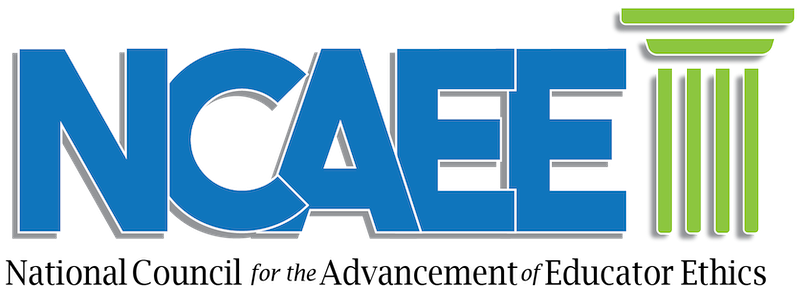About NCAEE

The National Council for the Advancement of Educator Ethics (NCAEE) was established by the National Association of State Directors of Teacher Education and Certification (NASDTEC) in June 2015. The NCAEE was initiated as a result of NASDTEC’s development of the Model Code of Ethics for Educators (MCEE), which was a response to a movement growing within the greater P-12 and educator preparation educational communities to ensure educators and prospective educators understand how professional decision-making can impact the safety and well-being of children, as well as the culture and mission of the school. This increased focus on examining, understanding, and informing best practice in educator decision-making has long been a critical part of the NASDTEC mission.
The purpose of the MCEE is to serve as a shared ethical guide for future and current educators faced with the complexities of P-12 education. The code establishes principles for ethical best practice, mindfulness, self-reflection and decision-making, setting the groundwork for self-regulation and self-accountability. The establishment of this professional code of ethics by educators for educators honors the public trust and upholds the dignity of the profession. In short, the code provides the foundation and encourages dialogue of what it means to be a professional in the profession of education.
The NCAEE will contribute to the current ethical movement by not only championing and keeping current the MCEE, but also working with its members, national partners, jurisdictions, Educator Preparation Providers (EPPs), P-12 school districts and schools, and other organizations to advance ethical understanding and practice across the profession of education. With the vision of an ethical professional in every classroom, the NCAEE will help ensure an ethical professional in every classroom. Ultimately, children will be safer in today’s schools.
NCAEE Vision
Every student is being taught, supported and led by educators who are ethical professionals.
NCAEE Mission
Promote and foster an intentional, thoughtful, and preventive focus on ethics and ethical instruction across the profession of education at national, state, and local levels that supports greater ethical understanding to guide behaviors and decision making.
Formed in 2015 by the NASDTEC Executive Board, the National Council for the Advancement of Educator Ethics (NCAEE) operates under the authority of NASDTEC’s Board as a special committee. The Council’s role is to provide national
leadership in advancing understanding and practice of professional ethics, promoting awareness and use of the MCEE, and overseeing periodic reviews of the MCEE to ensure relevancy.
As outlined in NCAEE’s Charter,
the Council consists of in-service and pre-service educators in a variety of roles from across NASDTEC’s four regions, as well as NASDTEC jurisdictional and industry representatives. Council members are appointed by NCAEE’s
Communication Partners comprised of educational organizations that undergird the education profession. A NCAEE Executive Committee leads the work of the Council; all Council members serve on one of the three standing committees:
Research and Policy; Media and Promotions; and Nominations. NCAEE is supported by a facilitator, a subject matter expert, and NASDTEC’s legal representative.
Examples of recent NCAEE initiatives include, but are not limited to, development of an educator ethics recognition program for school districts and educator preparation providers (EPPs); publishing the Educator Ethics microsite; production of MCEE: The Power of Professional Conversations video series and discussion guide, revisions to the MCEE (2nd edition), development and refinement of NCAEE Charter, new webcast series, MCEE research on Use of the Model Code of Ethics for Educators; local, state, and national presentations; and more.
Learn MoreNCAEE, a special NASDTEC committee, provides regular updates to the NASDTEC Executive Board. The updates include dates of committee meetings, topics of concern and discussion, which include updates on NCAEE initiatives, and
upcoming meetings. Click on the links below to access recent updates to the NASDTEC Executive Board.
